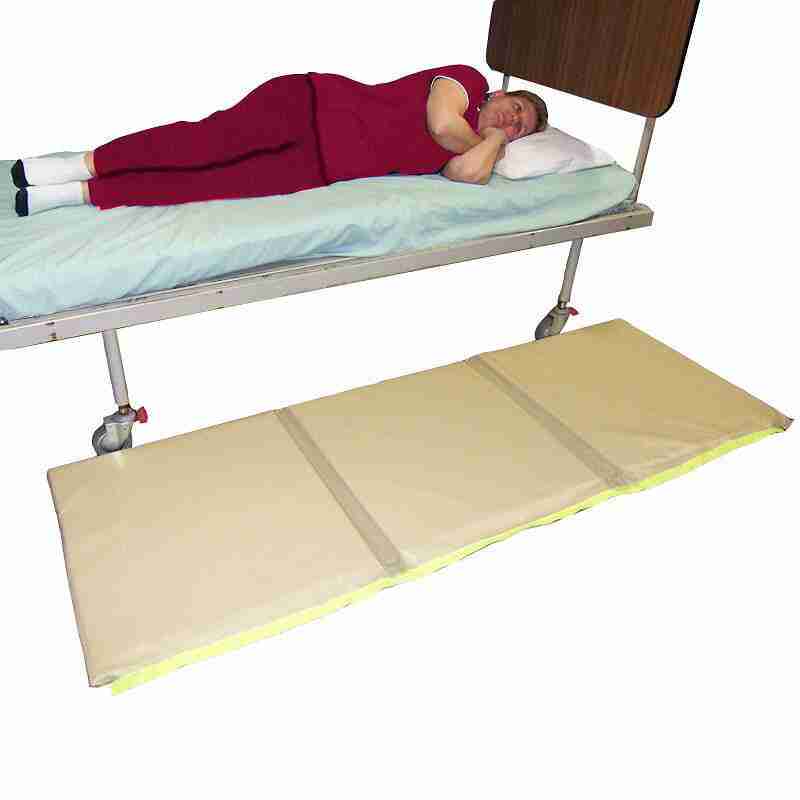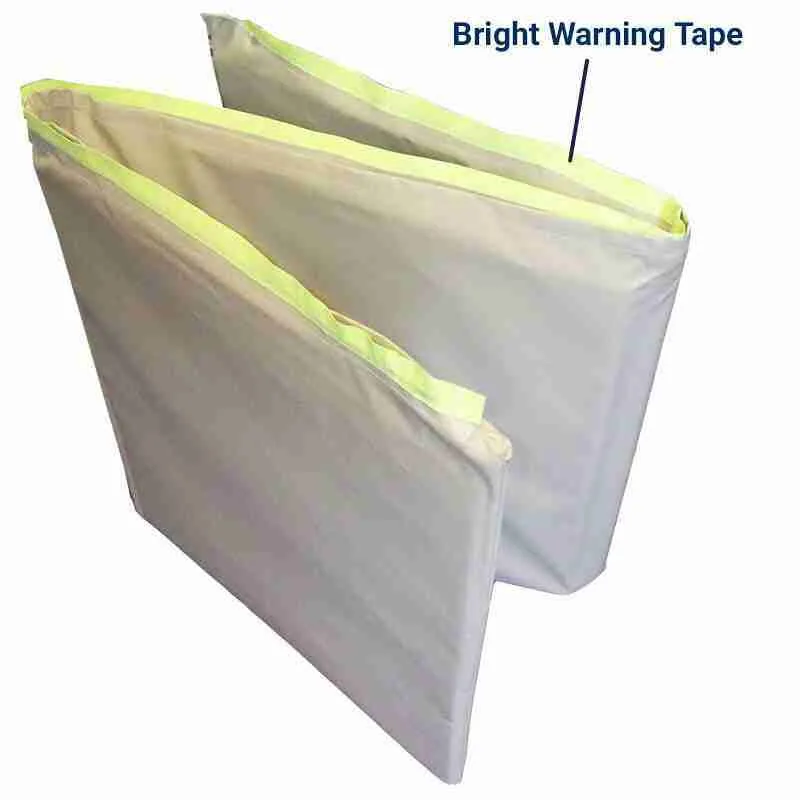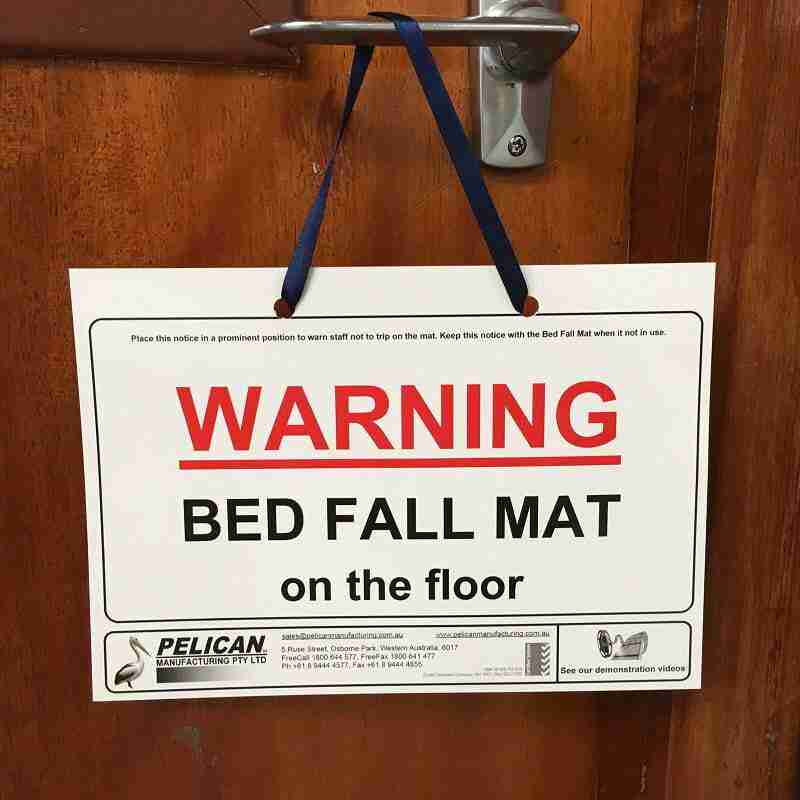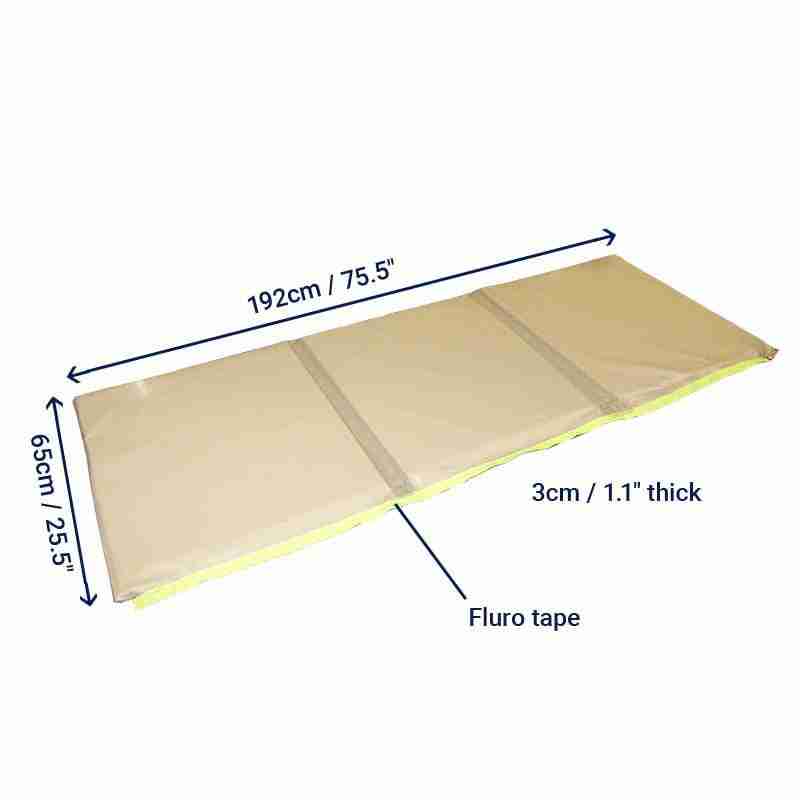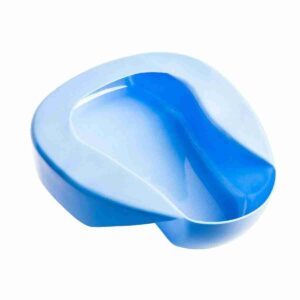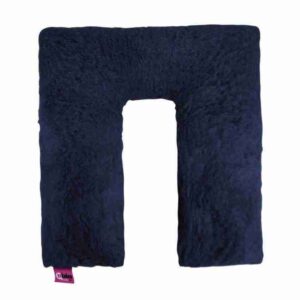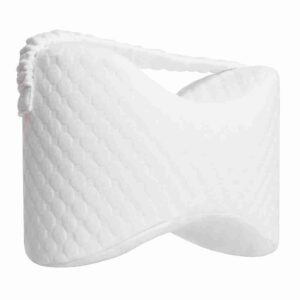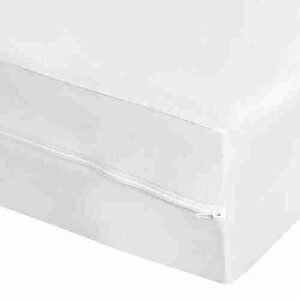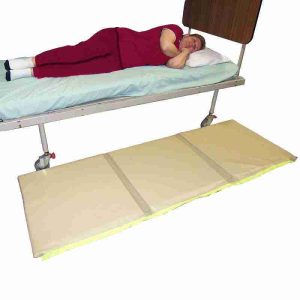Some Patients climb over bed rails, fall to the ground and are injured. A way to help avoid injury is to lower the bed as much as possible and place the Bed Fall Mat, sometimes known as a Crash Mat, next to the bed, so if the Patient gets out of bed, then they will have a soft surface to fall on.
Main Features
- An excellent crash mat to help prevent injury from bed falls
- For Patients who cannot walk, or who climb over bed rails, and then fall
- Supplied with a warning sign to avoid a tripping hazard
- Highly visible tape on edge to warn staff in low light
- Single layer of dense foam
It may help if the bed is placed next to the wall. If only one bed rail is raised, the Patient will then get out of bed on the side where the bed rail is removed. We recommend completely removing the bed rail, rather than simply lowering it. By leaving the rail in the lower position the Patient may hurt themselves against the rail if they fall.
About the Bed Fall Mat – Sewn
This product has a single layer of dense foam. A warning card is supplied to inform staff that the Mat is in position. This can be displayed in a prominent place to reduce the tripping hazard risk. When not being used, the Bed Fall Mat – Sewn can be folded up and stored behind the bed head.
People can fall in a variety of different ways. Pelican makes no express or implied guarantee that a Patient will not sustain an injury.
If you are concerned about this item slipping on your floor surface, please check out the Non-Slip Mat.
Also available:
- Bed Fall Mat – Sewn (Budget) – A cost-effective option to help prevent injury from bed falls, with Hi-Vis yellow material to warn staff that it is on the floor. Usually used on low beds.
- Bed Fall Mat – Heat Sealed – The best option for Infection Control, which is firm to walk on, has excellent impact absorption, and is 100% Heat Sealed.
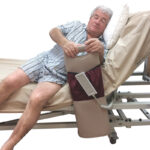 You may also want to consider the Bed Side Helper, which could prevent a fall from happening in the first place. The Bed Side Helper is used to help people getting in and out of bed by giving them something to hold on to and may be beneficial for people that suffer from orthostatic hypotension, who become dizzy while standing up from a bed and fall as a result.
You may also want to consider the Bed Side Helper, which could prevent a fall from happening in the first place. The Bed Side Helper is used to help people getting in and out of bed by giving them something to hold on to and may be beneficial for people that suffer from orthostatic hypotension, who become dizzy while standing up from a bed and fall as a result.









